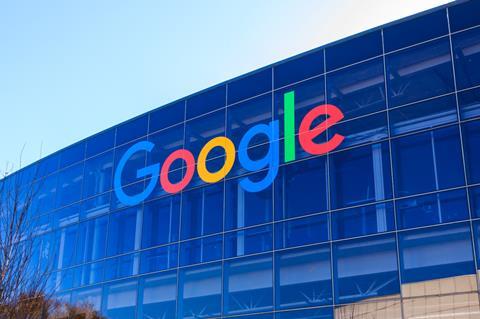- 11 startups join Google’s inaugural Accelerator program
- Mission to drive the UN’s Sustainable Development Goals
- Workshops shifted online due to the coronavirus pandemic
Google has announced 11 startups set to join the tech giant’s new sustainable development accelerator program.

Some 1,200 startups from across Europe, Middle East and Africa (EMEA) submitted entries with Google announcing today the successful 11 firms that will be attending its inaugural accelerator pilot.
The initiative was launched last year at Web Summit to champion actionable progress towards the United Nation’s 17 Sustainable Development Goals (SDG) for EMEA and will work towards a united effort to support these goals.
The 11 successful startups cover a wide range of SDGs with technology underpinning the startups’ missions - from artificial intelligence (AI), IoT, mobile cold storage and satellite data tools - the projects address a wide range of social and environmental challenges.
In a statement, Google said: “Due to the current corona crisis all physical elements (e.g. workshops, events) of the program have been transformed into a virtual version in order to support both the startups and the people behind them. All 11 finalists will now have access to a five-months accelerator program provided by Google for Startups.”
The first phase of the program, which is scheduled to start on 21 April, will now take place virtually with teams asked to attend an online kickoff via Google Hangouts, where they will further develop their businesses with the support of external experts and mentors from Google.
In a joint blog post, Google vice president engineering and Google for Startups Accelerator Sponsor Yossi Matais, with Google sustainability officer Kate Brandt said: “The Covid-19 pandemic and its widespread health, social and economic consequences have made the goal of the program—to help founders build technology to solve serious issues facing our world—even more pressing.”
The 11 selected startups
Wondertree (Pakistan): Wondertree accelerates cognitive and motor development in children with special needs through a variety of movement based therapeutic and educational games. (SDG 3, SDG 4)
OKO (Israel): OKO is a new generation crop insurance designed for emerging markets, using new technologies in satellite imagery and weather forecasting to simplify and automate claim management. (SDG 1)
mDoc (Nigeria): mDoc democratizes healthcare information for the African user through building a geo-coded database of healthcare services across countries. (SDG 3)
Solar Freeze (Kenya): Solar Freeze is pioneering mobile cold storage units powered by renewable energy for rural smallholder farmers, to help them reduce the huge challenge of post-harvest loss in much of the developing world. (SDG 1, SDG 2, SDG 7)
Skilllab (Netherlands): Skilllab provides artificial intelligence driven skill assessment to better integrate refugees into labour markets. (SDG 1, SDG 2, SDG 7)
Flare (Kenya): Flare is a software infrastructure and operational support for emergency response teams. (SDG 3, SDG 9, SDG 10)
Apic.ai (Germany): Apic AI is using honeybees as biosensors to provide intelligence in the fight against the perishing of insects. (SDG 2, SDG 11, SDG 15)
Everimpact (France): Everimpact provides an innovative solution to monitor air quality and carbon emissions in cities by combining satellite and ground sensing, utilising mobile, IoT and Big Data technologies. (SDG 11, SDG 13)
Ellipsis.earth (UK): Ellipsis.earth offers a complete end-to-end software to map the missing 99% of plastic pollution on earth with a network of 500 local drone pilots. With the help of strategic partnerships, they aim to provide a global database of plastic waste to influence lasting change. (SDG 14, SDG 15)
Cervest.earth (UK): Cervest.earth provides personalised insights that help organisations predict and manage the impact of climatic and extreme events, in real-time, for any location on the planet. Using this information, producers to policy makers can make proactive and smart decisions that help shape and sustain their future and our planet. (SDG 13)
Ororatech (Germany): Ororatech is the first commercial supplier of infrared satellite data for early detection and real-time monitoring of wildfires across the globe. (SDG 13, SDG 15)
Each startup founder will work closely with engineers from over 20 Google teams and other subject matter experts to address product, engineering, business development, and funding challenges. Since this accelerator is focused on sustainability, founders will learn these skills through the lens of the Sustainable Development Goals and relevant partners.
Matais and Brandt said: “Google for Startups was created to support those who want to build something better—and that’s exactly what we’ll continue to do, whether online or IRL.
“These are just a few of the many startups working locally on global solutions, and we’ll continue to bring Google’s resources to this entrepreneurial community.”



























No comments yet